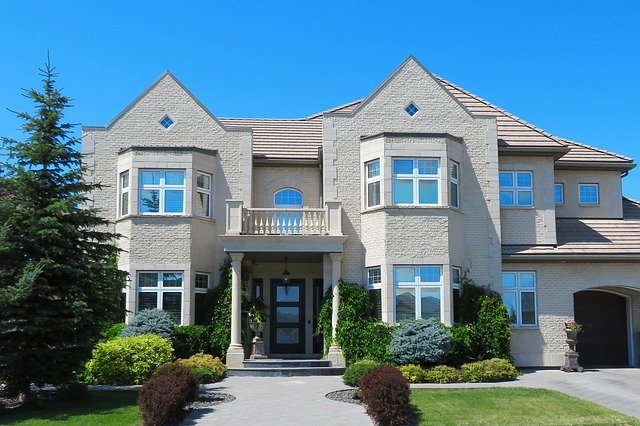The Spectrum of Options: Condos, Townhomes, and Detached Homes
The Journey of a First-Time Buyer :Purchasing my first home is certainly an exhilarating and significant step, brimming with dreams of discovering the ideal space to call my own. In my mind, I often visualize various living scenarios: a quaint condo nestled in the heart of a bustling city, where everything I need—modern amenities, vibrant culture, and the energy of urban life—could be just an elevator ride away. On the other hand, I picture a charming townhome that strikes a balance between a sense of community and privacy, offering shared spaces that foster connections with neighbors, yet allowing me my own sanctuary. Then there’s the spacious appeal of a detached home, a sanctuary where I can savor tranquility in my yard, free to put my personal touch on every aspect of my living space. As these thoughts swirl in my mind, I realize that I must thoughtfully assess which option aligns best with my needs as a first-time homebuyer.
To navigate this crucial decision, I’ve taken the time to consider the distinct pros and cons of each housing type—condos, townhomes, and detached homes. Beginning with condos, one of the standout advantages is that the condominium association typically handles routine upkeep and repairs. This not only frees me from the usual maintenance hassles but often grants access to attractive amenities such as pools, gyms, and recreational areas. Furthermore, the heightened security of amenities like gated entrances and surveillance systems is a tremendous plus. In general, condos present a more affordable entry point into homeownership, making them a popular choice among homebuyers.
However, I must remain aware of the downsides of condo living: monthly condo or strata fees can accumulate and may add to the financial burden over time. The close proximity to neighbors often leads to shared walls and common areas, which can result in diminished privacy and increased noise levels. Additionally, the presence of specific condominium rules may restrict my freedom regarding modifications to the unit or even pet ownership, making it essential to understand these stipulations before making a commitment.

A next viable option that I find myself contemplating is townhomes. They present a little more privacy compared to condos, and if the townhome I consider is a condo-style arrangement, some external maintenance—like snow removal—could still be managed through the condo fees. I’m also intrigued by non-freehold townhomes, which are typically less expensive since I wouldn’t own the land. If I opt for an end-unit townhouse, I would enjoy a space similar to a semi-detached home, with only one shared wall.
Additionally, heating costs with a townhome could be more manageable, thanks to adjoining neighbors’ insulation, which is undoubtedly a benefit during colder months. However, there are drawbacks to consider as well: noise can still be a concern in a townhome setting, and those who choose a non-freehold option may find the long-term investment potential limited due to the lack of land ownership.

As I further explore my options, detached homes emerge as a highly appealing choice, offering the ultimate in privacy and space. There would be no shared walls, resulting in quieter living quarters and the availability of larger living areas and outdoor spaces. This setup grants me considerable freedom to modify and renovate my home per my preferences. Yet, there is a caveat: with that freedom comes the responsibility for all upkeep and repairs, which could become time-consuming and costly.
Typically, detached homes also come with a higher price tag, property taxes, and insurance premiums—financial factors that could potentially strain my budget. As I weigh these considerations, I find the potential for resale value to be another important aspect to keep in mind. Historically, detached homes appreciate steadily over time compared to condos and townhomes, but local market conditions can heavily influence this trend. Factors—such as location, community development, and accessibility to amenities—must all be evaluated. Homes situated in desirable neighborhoods usually boast higher resale values, establishing them as more favorable long-term investments.
When assessing the necessary upkeep, it’s important to note that condos rank lowest in maintenance responsibilities since the condo board manages it, while townhomes require less investment of time and effort compared to detached homes, which demand considerable dedication to maintenance.

Noise is another aspect that warrants my attention: living in a condo often amounts to higher noise levels from shared walls and communal spaces. Although soundproofing solutions could be implemented, they do come at an added cost. Townhomes can also be impacted by noise, albeit typically at a lesser degree than condos. Detached homes offer the highest level of privacy and tranquility, aligning perfectly with my personal preference for a calming living environment.
Furthermore, I need to deliberate over the implications of land ownership. While non-freehold townhomes might present lower initial costs, they could also limit long-term investment value. Freehold properties—where I own both the home and the land—such as detached or select townhomes, generally ensure better property value retention. The financial implications also extend to budgets: condos are typically the most affordable, followed by townhomes, with detached homes being the most expensive option. However, ongoing costs, such as utilities, insurance, and property taxes, can vary considerably based on the type of home I select. For instance, condos and townhomes may experience lower utility expenses due to shared systems, but these savings could be offset by additional condo or strata fees. In contrast, detached homes require me to cover the complete cost burden for utilities, upkeep, and more.
When it comes to available space and layout, these factors also play a critical role in my decision-making process. Generally speaking, condos offer less square footage and limited outdoor areas, making them suitable for individuals or small families seeking low maintenance. Townhomes, in contrast, provide more space and are an excellent fit for small to medium-sized families. Conversely, should I lean toward detached homes, I will have the most flexibility and option for larger families or anyone desiring space to customize their surroundings.
Lastly, I must consider the amenities and services associated with each option. Typically, condos come with numerous perks, such as access to pools, gyms, and recreational facilities, often reducing the necessity for external memberships. Townhome communities might boast shared amenities like parks and playgrounds; however, detached homes usually lack these shared facilities, yet they present the freedom to create personal sanctuaries with gardens or pools in their outdoor spaces.
In conclusion, the choice between a condo, townhouse, or detached home represents a pivotal decision for any aspiring homeowner. Each option has its unique set of advantages and challenges, making it imperative for me to examine these considerations carefully. In making this important choice, I am encouraged to reach out to a RE/MAX agent, who can provide guidance tailored to my specific lifestyle needs. Additionally, tapping into the latest housing market trends—such as insights from RE/MAX updates—will help ensure that I am making informed decisions as I embark on this exciting journey toward homeownership.
Choosing my first home involves weighing the pros and cons of condos, townhomes, and detached homes. While condos offer lower costs and amenities, they come with shared spaces and rules. Townhomes balance privacy and community but might limit long-term investment. Detached homes provide the most space and privacy but with higher costs and maintenance. Carefully considering these factors will guide me in making a decision aligned with my lifestyle needs.





